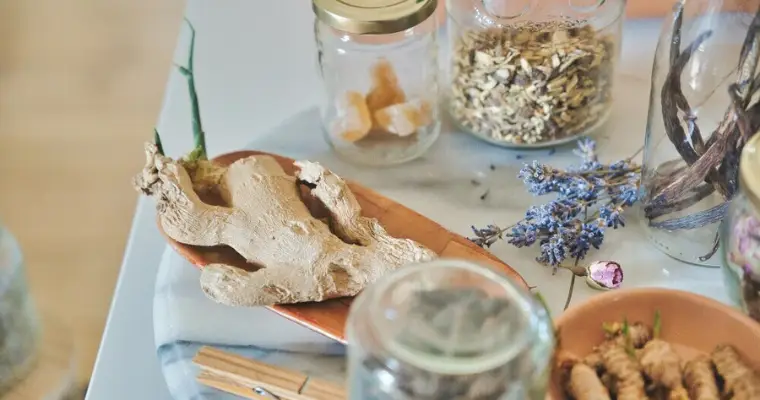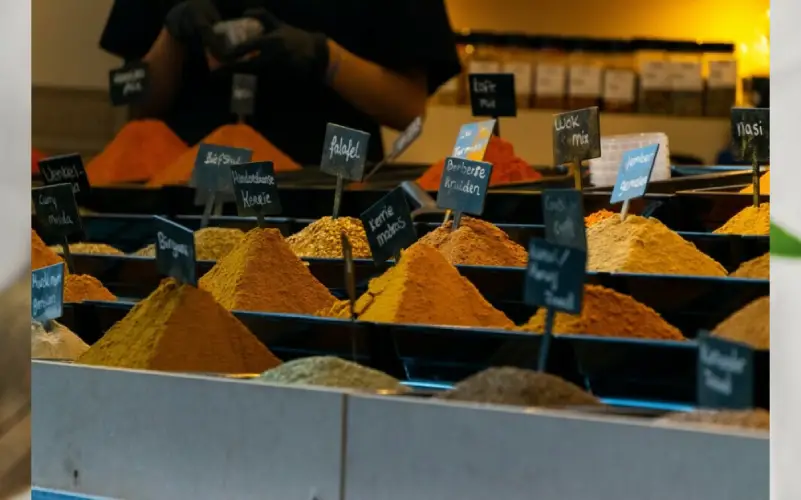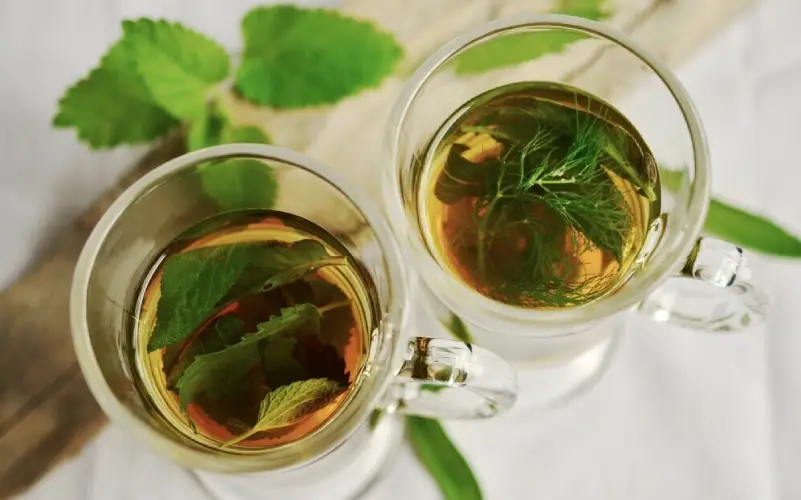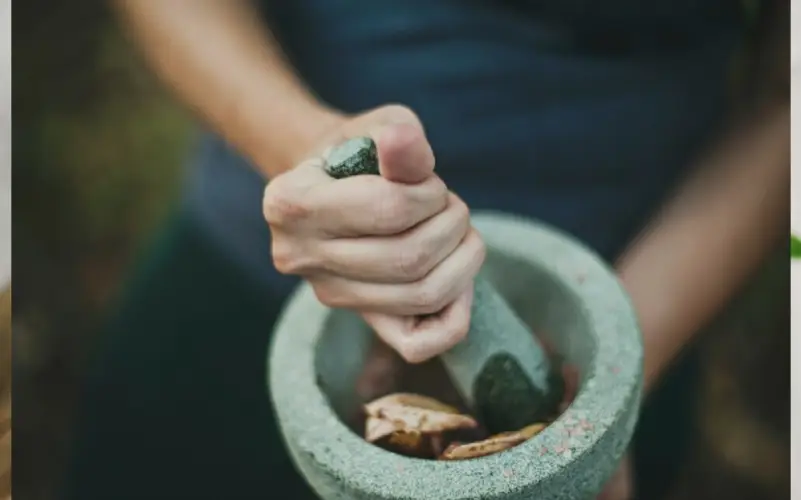What are Medicinal Herbs?

In this post, we’ll explore the fascinating subject of What are Medicinal Herbs and their numerous benefits.
These plants have been used for centuries to address various ailments and promote overall well-being.
Welcome to our Whole Food Plant based focused lifestyle blog, where we embrace the bountiful gifts of nature!
So, let’s get right into the rich world of plant medicine and discover how it can enrich our lives.
Embracing Nature’s Healing Bounty
Remarkable Creation Across Civilizations
Across civilizations, these plants have displayed a remarkable ability to synthesize an extensive array of chemical compounds.
These compounds serve multifaceted purposes, playing pivotal roles in safeguarding the plant’s existence while offering invaluable therapeutic benefits to humans.
Crafting Defense Compounds
One of the primary functions lies in defense mechanisms. Medicinal plants intricately craft these chemical compounds as a shield against various threats in their environment.
For instance, some compounds act as natural pesticides, deterring insects and herbivorous mammals from consuming or damaging the plant.
Others exhibit antifungal properties, aiding the plant in warding off potentially harmful fungi that could compromise its health.
Ancient Wisdom in Remedies
Beyond their defensive role, these compounds are loaded with medicinal potential. Through centuries of empirical observation and exploration, ancient healers discovered and harnessed the healing properties encapsulated within these compounds.
They’ve become the backbone of traditional medicinal practices, offering remedies for an extensive range of ailments and health concerns.
Natural Defense Against Illness
Moreover, these compounds often possess antimicrobial and antiviral properties, presenting a natural defense mechanism against various diseases.
Their diverse chemical makeup contributes to their efficacy against a wide spectrum of health issues, from minor infections to more complex illnesses.
Intelligence Within Botanical Species
The synthesis of these compounds within medicinal plants stands as a testament to nature’s ingenuity and the intricate relationship between plants and their environment.
It highlights the inherent intelligence embedded within these botanical species, fostering a symbiotic relationship that not only ensures their survival but also provides a wellspring of healing for humanity.
Ancestral Wisdom in Modern Healing
In essence, the synthesis of these many chemical compounds within medicinal plants represents a harmonious interplay between self-defense and healing properties.
Their utilization in traditional medicine underscores the profound wisdom passed down through generations, offering humanity a bounty of natural remedies that continue to enrich our well-being.

Understanding What are Medicinal Herbs
Here are some remarkable medicinal herbs worth exploring:
Turmeric:
Uses: Turmeric, with its active compound curcumin, boasts anti-inflammatory and antioxidant properties.
Benefits: It aids in relieving joint pain, supporting the immune system, and promoting heart health.
Lavender:
Uses: Lavender is renowned for its calming and soothing effects, making it ideal for relaxation and stress reduction.
Benefits: It helps with anxiety, insomnia, and even skin conditions like eczema and acne.
Echinacea:
Uses: Echinacea is a powerful immune booster, helping the body fight off infections and common colds.
Benefits: Its anti-viral and anti-bacterial properties contribute to overall improved immunity.
Peppermint:
Uses: Peppermint is a fantastic digestive aid and can alleviate symptoms of indigestion and bloating.
Benefits: Its cooling sensation also relieves headaches and muscle pain.
Ginger:
Uses: Ginger is well-known for its anti-nausea properties and is often used to combat motion sickness and morning sickness during pregnancy.
Benefits: It also possesses anti-inflammatory effects and can aid in reducing menstrual pain.
Chamomile:
Uses: Chamomile is a gentle sedative, making it perfect for promoting sleep and relaxation.
Benefits: It can ease anxiety, stress, and even stomach cramps.
Ashwagandha:
Uses: Ashwagandha is an adaptogen, helping the body manage stress and balance hormones.
Benefits: It boosts energy levels, improves cognitive function, and supports adrenal health.
Aloe Vera:
Uses: Aloe vera gel is well-known for its soothing properties and is commonly used to treat minor burns, sunburns, and skin irritations.
Benefits: It contains vitamins, minerals, and amino acids that promote skin health and support wound healing.
Ginseng:
Uses: Ginseng is an adaptogenic herb that helps the body cope with stress and boosts energy levels.
Benefits: It can enhance mental clarity, improve physical endurance, and support the immune system.
Rosemary:
Uses: Rosemary is a versatile herb that not only adds flavor to dishes but also improves cognitive function and memory.
Benefits: Inhaling its aroma can enhance concentration and focus.
Holy Basil (Tulsi):
Uses: Holy Basil, or Tulsi, is considered a sacred herb in Ayurveda and is known for its calming and balancing effects.
Benefits: It helps reduce anxiety, supports respiratory health, and enhances the body’s natural defense mechanisms.
Lemon Balm:
Uses: Lemon balm is a calming herb that promotes relaxation and uplifts the mood.
Benefits: It can aid in reducing stress, improving sleep quality, and easing digestive discomfort.
Dandelion:
Uses: Dandelion leaves and roots have been traditionally used to support liver health and promote detoxification.
Benefits: It can aid in flushing out toxins from the body and improving digestion.
Sage:
Uses: Sage has antimicrobial properties and is used in throat gargles and mouthwashes for sore throat relief.
Benefits: It can also help manage menopausal symptoms and support memory function.
Milk Thistle:
Uses: Milk thistle is renowned for its liver-protecting properties and is often used to support liver health.
Benefits: It aids in detoxification and can help regenerate liver cells.
Passionflower:
Uses: Passionflower is a calming herb that can alleviate symptoms of anxiety and insomnia.
Benefits: It promotes relaxation without causing drowsiness or addiction.
Nettle:
Uses: Nettle leaves are rich in vitamins and minerals, making them a valuable addition to the diet.
Benefits: Nettle tea or supplements can support kidney function, reduce allergy symptoms, and improve skin health.
Incorporating Medicinal Herbs into Your Lifestyle
Now that we’ve explored some incredible medicinal herbs, let’s see how we can seamlessly integrate them into our lives.

Herbal Teas for Relaxation and Wellness
Brew herbal teas using various medicinal herbs like chamomile, lavender, or ginger for a calming and soothing experience.
These teas offer relaxation, stress reduction, and aid in sleep quality.
Ginger tea aids digestion and has anti-inflammatory properties.
Chamomile promotes relaxation and eases anxiety, while lavender helps in stress reduction and insomnia.
Herbal Infused Oils for Topical Application
Create herbal-infused oils using herbs like lavender, chamomile, or rosemary for massages or skin applications.
Lavender-infused oil promotes relaxation and helps alleviate headaches, while chamomile-infused oil aids in soothing skin irritations and promoting sleep.
Rosemary-infused oil can improve cognitive function and memory.
Herbal Steam Baths for Aromatherapy
Enjoy herbal steam baths with aromatic herbs like eucalyptus, rosemary, or mint to open pores and relax.
Eucalyptus steam baths can aid respiratory health, while rosemary and mint offer refreshing aromas that can help reduce stress and improve mood.
Herbal Supplements for Daily Intake
Include herbal supplements such as turmeric capsules, echinacea tablets, or ashwagandha powder in your daily routine.
Turmeric capsules provide anti-inflammatory benefits, while echinacea tablets boost immunity. Ashwagandha powder aids stress management and cognitive function.
Culinary Use of Medicinal Herbs
Incorporate medicinal herbs like thyme, oregano, or basil into cooking for added flavor and health benefits. Thyme and oregano possess antimicrobial properties, supporting immune health.
Basil aids digestion and has anti-inflammatory properties.
Herb-Infused Water for Daily Hydration
Infuse water with herbs like mint, lemon balm, or lemongrass for a refreshing and healthy beverage.
Mint-infused water aids digestion and can alleviate headaches.
Lemon balm and lemongrass-infused water can promote relaxation and reduce stress.
Specifically, integrating these medicinal herbs into various aspects of daily life, individuals can experience a range of health benefits. Including improved relaxation, stress reduction, better sleep, enhanced digestion, boosted immunity, and overall well-being.
Incorporating Wisdom from Nature

Tapping into Nature’s Wisdom:
The realm of medicinal herbs spans wide and diverse, providing a rich reservoir of natural remedies tailored to diverse health needs.
As we delve into this ancient wisdom, honoring and safeguarding nature’s offerings becomes essential.
Furthermore, by adopting sustainable and ethical practices, we pave the way for forthcoming generations to benefit from the remedial prowess of medicinal herbs.
Embracing a plant-based lifestyle extends beyond personal gains; it champions the well-being of our earth.
Consequently, integrating medicinal herbs into our lives represents an approach to enriching our well-being and fostering a healthier, plant-centric lifestyle.
These gifts from the earth offer a holistic route to wellness. Let’s warmly welcome nature’s healing essence into our lives, exploring the marvels of medicinal herbs.
Seeking guidance from healthcare professionals before incorporating new herbs, especially if pregnant, nursing, or managing pre-existing health conditions, is crucial.
Here’s to a vibrant life, brimming with health and well-being, alongside our herbal companions!
Conclusion
In closing, as we conclude this exploration of medicinal herbs, our hope is that you’ve felt inspired to embrace their extraordinary benefits.
Nature has bestowed upon us a treasury of healing plants capable of nurturing our physical, emotional, and mental well-being.
Incorporating these herbs into your daily rituals unlocks their potency, ushering in the marvels of natural healing.
Whether savoring a comforting cup of chamomile tea before bedtime or indulging in the tranquility of a lavender-infused massage oil, these simple additions wield profound impacts on your overall health.
Remember, a plant-based lifestyle extends beyond dietary choices—it encompasses the herbs we embrace and the natural remedies we adopt.
Furthermore, embracing a holistic approach to well-being enables us to forge connections with nature and seek harmony in our lives.
Integrating medicinal herbs serves as a cornerstone toward a more mindful and sustainable lifestyle. Continue exploring the realms of plant-based living, discovering an abundance of benefits for yourself and your family.
Lastly, ensure the purity and potency of your herbs by sourcing them from reputable and organic suppliers.
Prioritize your safety by consulting healthcare professionals should any concerns arise about integrating new herbs into your routine.
Final Comments

We extend our heartfelt gratitude for joining us on this enlightening journey.
Our hope is that this blog post has kindled a newfound passion for herbal remedies, guiding you to unravel the boundless gifts bestowed upon us by nature.
So, embrace the wisdom gleaned from the past and revel in the marvels of the natural world as you walk hand in hand with medicinal herbs on your voyage towards a healthier and happier life.
Until we meet again, remain grounded in nature, while harnessing the profound power of medicinal herbs to foster your well-being.
Please leave us a comment if you are looking for support on your plant-based journey or have any questions.
BE SURE TO SIGN UP FOR YOUR > FREE 12 TIPS FOOD GUIDE <
Cheers,
Plantaful Life Team
Disclaimer: The information shared in this blog post and on our website is for educational and informational purposes only. We are here to inspire and support you on your plant-based journey. However, always prioritize your health and consult with your trusted healthcare provider for personalized advice. By using our website, you acknowledge and agree that you have read and understood this medical disclaimer. Additionally, you acknowledge the significance of seeking professional medical advice for your specific health needs.
REFERENCES:
The Use of Culinary Spices and Herbs in a Plant Based Diet – Plantaful Life
What Does the Bible Say About Herbs For Healing? (openbible.info)